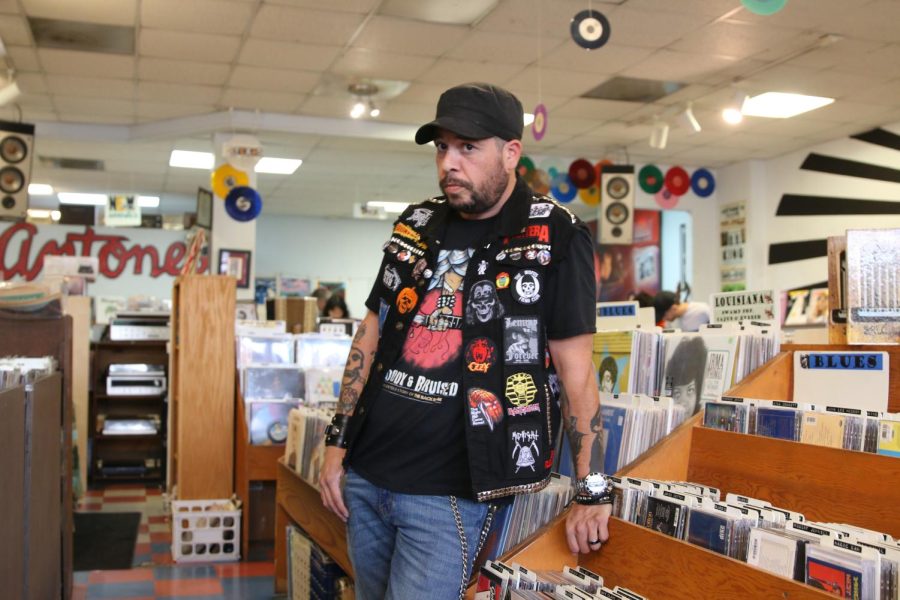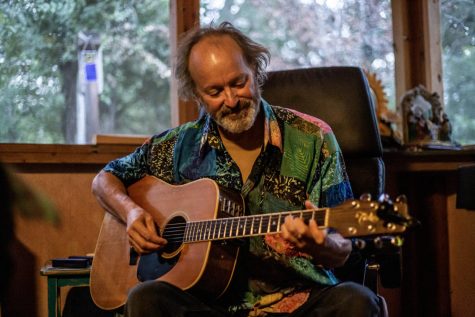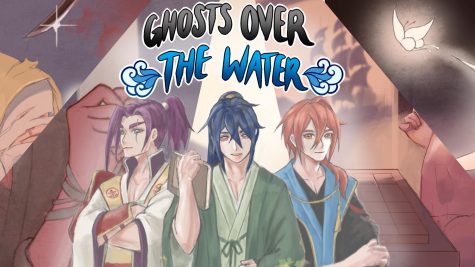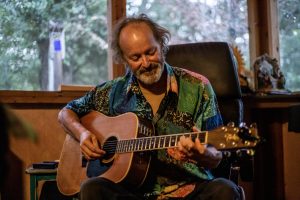RTF alum honors timelessness of Back Room in upcoming music documentary
November 4, 2022
Kicking off Budro Partida’s upcoming documentary, a record player blares music from Austin rock band Dangerous Toys — a group that gained popularity from the Back Room, a famous performing club for musicians during the 1980s and 1990s.
Though the venue closed in 2006 after 33 years in business, the Back Room remains an unforgettable home for many music enthusiasts, including UT alumnus Partida who seeks to highlight the venue’s history on film by incorporating music from Austin acts like the Dangerous Toys throughout his project.
After attending UT in the early 2000s, Partida said he founded his own production company, PennyRock Productions, to bring narratives to life. Inspired to commemorate the history and meaning of the Back Room, Partida said he and his team decided to create a feature documentary called “Bloody & Bruised: The Untold Story of the Back Room.” Replaced by concert venue Emo’s, the Back Room originally served as the birthplace for rising and world famous hard-rock artists.
“I lived down the street from the Back Room when I first moved to Austin. … That was one of the first places I went to see a live show,” Partida said. “It pained me to see it being forgotten.”
Starting the film’s production during the end of 2020, Partida said he knew the feature would be his most challenging project. Over nine months, his team shot around 60 interviews from Back Room staff, musicians and other crucial figures in the venue’s history. Currently in the post-production process, Partida said he feels the documentary will make for the biggest project of his career.
“I’m trying to fit 33 years of history into two hours,” Partida said “It’s terrifying, amazing and satisfying all at the same time. I knew this was going to be the most difficult project I had ever done, but I knew it was going to be worth it.”
John Jew, producer of PennyRock Productions and former manager for rock band Manifesto, said he frequented the Back Room to book bands. Jew said the film aims to do right by the old school crowd while also informing the younger generation of the venue’s existence.
“(The Back Room) meant a lot to a lot of people,” Jew said. “(The film) is a love letter to the Back Room for the old crowd and for the younger crowd that didn’t know there was something before Emo’s.”
Co-producer Tammy Moore said she worked at the Back Room for 15 years. Through a rollercoaster of emotional moments she experienced at the venue, Moore said the Back Room reflected her journey in becoming a better version of herself.
“It was wild, exhilarating, heartbreaking and it took my soul and shook me every which way,” Moore said. “I wouldn’t trade it — it’s part of me.”
Calling the club her second home, Moore said she appreciated getting to see a film made about her family and having a front row seat to music history.
“I hope people understand the magic that took place in the venue,” Moore said. “I hope people walk away having learned something about humanity against the tension of music, and young people understand … how generations before lived it inside this building.”
Despite the documentary’s delayed release, Partida said he prioritizes the importance of doing the Back Room justice, telling its story with precision and care, showcasing how the place was special to everyone who visited.
“It’s not just entertaining stories that are connected,” Partida said. “It’s about how much this place really affected a lot of people that were there, whether they be musicians, employees, fans or just happened to show up on random nights.”









